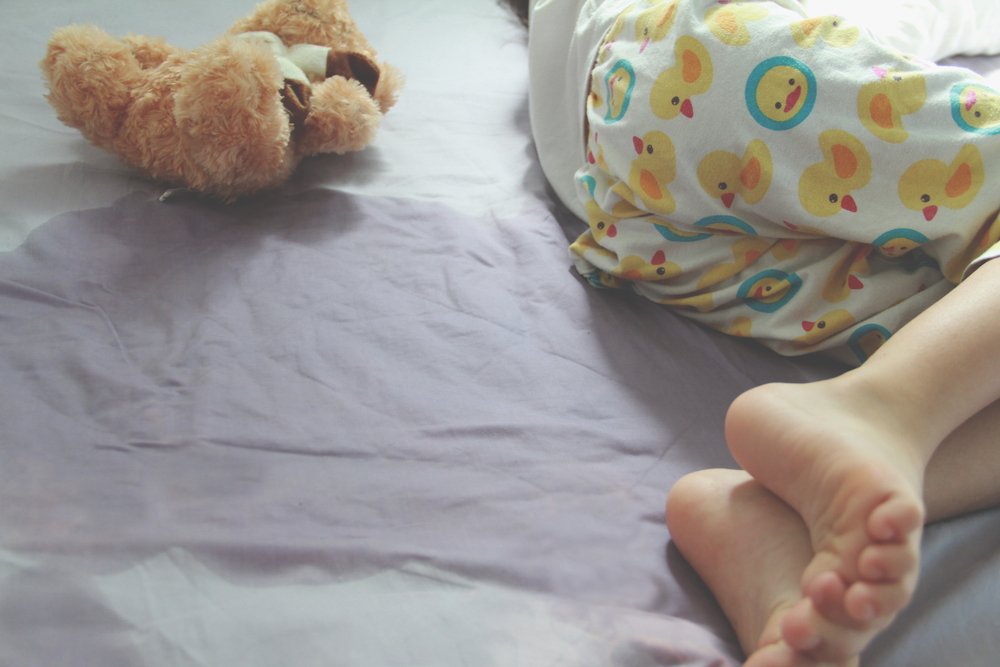Bedwetting in children, sometimes referred to as nocturnal enuresis, is the involuntary passing of urine as you sleep, most often in children. Both boys and girls can get this prevalent illness. Although bedwetting can occur at any age, it is more common in young children.
Even while bedwetting isn’t a dangerous condition, your child and family may experience stress as a result.
Kids who wet the bed sometimes experience shame or embarrassment. They may refrain from engaging in some activities, including sleepovers, out of concern that they could wet the bed while they are away from home.
Table of Contents
What is Normal When it Comes to Bedwetting in Children?
Experts at Avicenna Hospital say that it’s critical to comprehend what is regular and age-appropriate in the case of bedwetting. Young children frequently experience bedwetting, but most of them outgrow it as their bladder control improves. The following are some general principles:
Infants and Toddlers
Since they do not yet have the ability to control their bladder, it is common for babies and toddlers to wet their diapers while they sleep. At this age, bedwetting is hardly a cause for alarm.
Pre-school Age Children
Predictors and outcomes of childhood primary enuresis can also be seen in preschoolers. They experience occasional bedwetting. Around 20% of 5-year-olds wet the bed, and it gradually decreases with age. At this stage, it is considered within the range of normal development.
School-age Bedwetting in Children
By the age of 6 or 7, most children have acquired bladder control and can stay dry throughout the night. However, it is still considered normal for some children to have occasional bedwetting incidents.
Teenagers and older kids
Bedwetting after the age of seven can be more problematic. Even if it is less often, it might still happen occasionally. It is advised to seek advice and an examination from a healthcare professional if bedwetting persists into the teenage years.
What are the Causes of Bed Wetting in Children?
Dr. Zubair Ahmed Cheema who is one of the top urologists in Pakistan says that bedwetting in children can happen for a number of reasons. Following are some typical reasons for bedwetting:
Delayed Development: Dr… who is one of the best urologists in Pakistan says that some kids may take longer to learn how to regulate their bladders, and it’s possible that their systems are still figuring out how to store urine all night. It is thought to be a typical phase in their growth.
Hormonal Factors: The production of antidiuretic hormone (ADH), which helps reduce urine production at night, may be lower in some children, leading to increased urine output during sleep.
Deep Sleep: Bedwetting episodes can occur in kids who don’t wake up when their bladder is full due to their deep sleep habits.
Emotional Factors: Bedwetting in children can be caused by emotional issues such as stress, worry, or emotional changes brought on by starting school, going through a significant life event, or psychiatric factors.
Genetics: Bedwetting tends to run in families, indicating a genetic component. If one or both parents had a history of bedwetting, their child is more likely to experience it as well.
Small Bladder Capacity: Some kids may store less urine before having to empty their bladders due to their smaller bladder capacity. This may increase the risk of bedwetting.
Urinary Tract Infections: Occasionally, urinary tract infections (UTIs) can lead to bedwetting. Urinary tract infections (UTIs) can increase the urgency and frequency of urine.
Suggested Read: How to Tell If You Have a UTI?
Is Bed Wetting a Symptom of a Disease?
Bedwetting in children (also known as nocturnal enuresis) may occasionally be a sign of a more serious illness. Even while the majority of bedwetting cases are thought to be normal and connected to developmental issues, it’s crucial to be aware of any potential medical explanations. The following health issues could make someone more likely to wet the bed:
Constipation
Prolonged constipation can put a strain on the bladder, which can cause momentary malfunction and bedwetting.
Suggested Read: Constipation Relief for Kids
Diabetes
Diabetes can increase urine production, which can result in frequent urination and bedwetting. This is true of both type 1 and type 2 diabetes.
Structural or Anatomical Abnormalities
Bedwetting may be brought on by conditions including spinal cord problems, urinary tract disorders, or structural abnormalities in the urinary system.
Sleep Apnea
Sleep-disordered breathing, such as obstructive sleep apnea, can disrupt normal sleep patterns and lead to bedwetting in children.
Hormonal Imbalances
Disorders affecting hormone production, such as diabetes insipidus or hypothyroidism, can disrupt the body’s ability to regulate urine production and contribute to bedwetting.
Suggested Read: Urinary Retention Treatment
When to See a Urologist
It is important to note that medical causes of bedwetting are less common than developmental factors. However, if bedwetting in children persists beyond the expected age or is accompanied by other concerning symptoms, it is advisable to consult the best urologist near you by contacting Healthwire. They can assess the situation, perform any necessary tests or evaluations, and determine if there is an underlying medical condition contributing to the bedwetting.
